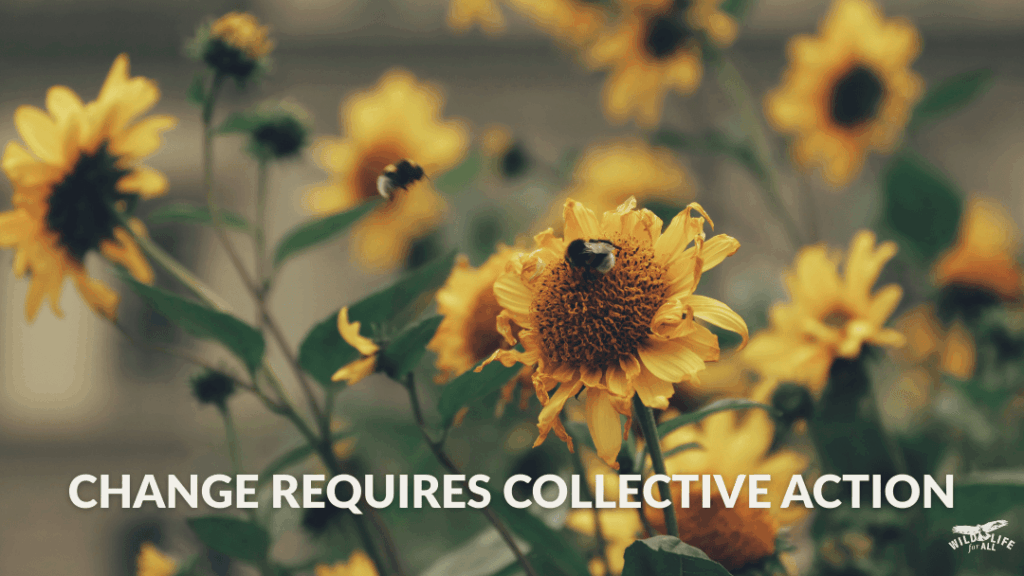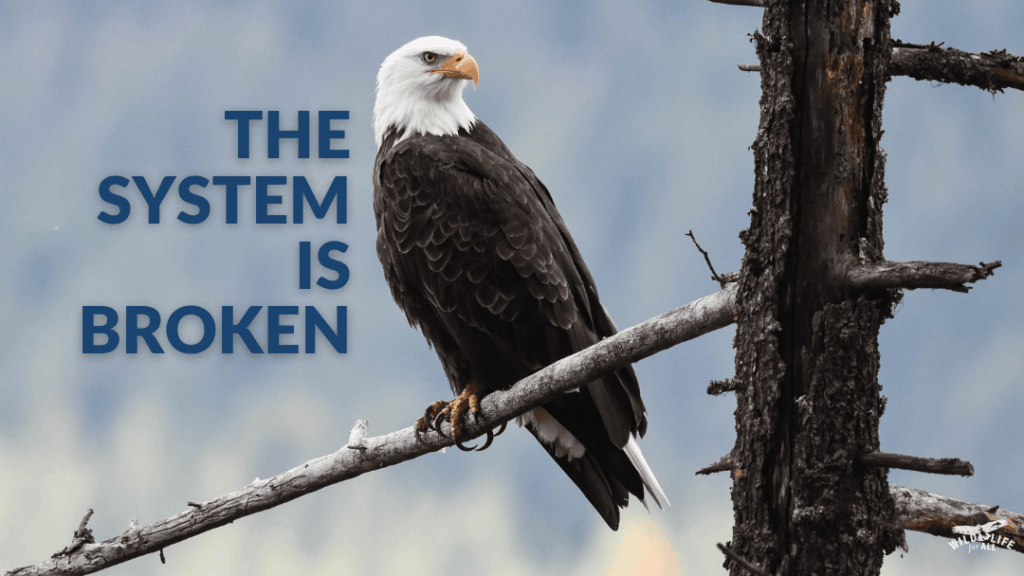
State wildlife decisions have long been made by a small set of entrenched interests — leaving most people, and most wildlife, without a voice. Building Power for Wildlife Justice is our answer: a practical, political, and values-driven organizing training that builds up the next generation of organizers to win democratic, science-forward wildlife policy in the states.
Building Power for Wildlife Justice is a free 8-week program starting January 2026 with a curriculum that provides advocates an opportunity for ongoing mentorship from experienced organizers, campaign strategists, and wildlife scientists. You’ll have access to a national network of partner organizations, legal counselors, and science advisors for campaign planning and execution. Throughout the course of the program, you’ll develop a practical campaign plan to deploy in your own state and receive a certificate of completion.
Spots are limited so we’re accepting applications to fill our program.
Apply to join the first cohort — APPLICATIONS CLOSED
Applications for the 2026 cohort of Building Power for Wildlife Justice are due by 5 p.m. PT, Friday, December 19, 2025. Training runs from January 19 to March 19, 2026, with sessions scheduled based on cohort availability. Acceptance decisions will be sent to applicants by January 5, 2026. The program is completely free.
For funders & partners: We are building a replicable movement infrastructure that connects narrative power, community organizing, and policy strategy to permanently shift state wildlife governance. If your foundation or organization is interested in funding or partnering on this program, please contact info[at]wildlifeforall[dot]us for the LOI and full program brief.
Why organize in states?
State wildlife agencies and commissions are where the rules that govern wildlife policy are written — and too often those bodies don’t represent the public. Modern conservation requires both science and democracy: diverse leadership, accountable trusteeship, and policies that protect whole ecosystems and communities.
Building Power for Wildlife Justice was created to:
- Center people power. We train advocates from across the country on how to organize their communities and lead sustained campaigns.
- Shift systems, not just singular fights. To see real change, we must move beyond reactive campaigns to strategic, state-level reforms that change who sits at the table and how decisions are made.
- Fuse science with values. We’re equipping advocates to use rigorous science, diverse knowledge systems, and public values to reframe wildlife governance to fit with how the majority of Americans view wildlife: as wild neighbors who deserve our respect and coexistence.
Who should apply
We seek committed wildlife advocates, organizers, and emerging leaders who:
- Want to lead long-term, state-level campaigns for wildlife, public lands, and democratic governance.
- Live or work in a U.S. state
- Are ready to commit time to this program and to lead or co-lead a local campaign.
- Come from — or work closely with — communities most affected by undemocratic and unjust decision-making (Indigenous, rural, frontline, working-class, Black communities, and communities of color). We strongly encourage BIPOC, rural, and early-career organizers to apply.
Time commitment & logistics
- Program length: Core training (8 weeks) + 6 months of implementation support.
- Weekly time estimate: 4–6 hours for live sessions, readings, and cohort work (some weeks vary).
- Format: Hybrid — live virtual workshops (recorded if you must miss) + regional in-person convenings when possible.
- Accessibility: All workshops will have closed captioning and for now, be conducted in English. We are looking for Spanish interpreters and hope to offer that option soon.
- Virtual workshops will be hosted on Zoom and are best experienced with the full participation allowed by an internet connection with video streaming capability. You will not be required to be on video and can also join by phone if needed.
Apply now
Applications are due by 5 p.m. PT, Friday, December 19, 2025.
Our first training cohort begins January 2026 with a subsequent cohort starting later in the year. There is no time like the present to join us in building power, defending democracy, and reshaping wildlife governance for people and all life.
Apply to be part of Cohort 1 → APPLICATIONS CLOSED
Questions? Contact: info[at]wildlifeforall[dot]us
FAQs
Do I need prior organizing experience?
No — we welcome both experienced organizers and committed newcomers. The curriculum balances skill-building with strategy.
Is this a paid position?
Not at this time.
Will there be interviews to decide participation?
No interviews will be conducted. Our decisions will be based on the form you submit and level of interest from the community.
What will I be asked to do after training?
Each cohort member is asked to design and lead (or possibly co-lead) a local or state pilot campaign that advances wildlife governance reform in their community or state. There will also be follow-up convenings and subsequent trainings to deepen knowledge and understanding.
How competitive is admission?
We expect strong interest. Applications are reviewed for commitment to long-term organizing, alignment with program goals, and passion to lead community-centered campaigns.
How many people will be in the cohort?
We aim for 15–20 participants per cohort but there may be up to 30 participants, depending on interest.
What does the program cost?
The program is offered at no cost thanks to support from our donors and foundation partners. Donations are accepted and greatly appreciated; if you have the means, your support will help this program train people in the communities most affected by injustice under current governance structures.
Are travel stipends available for in-person convenings?
In-person convenings, while not planned at this time, will be optional and we are working on additional funding to cover future travel costs.
What support will I receive during the 6-month implementation period?
Participants won’t just complete the training—they’ll have ongoing support as they put their skills into action. You’ll receive mentorship from experienced organizers, regular coaching calls to troubleshoot challenges and refine strategies, and access to a peer cohort of fellow advocates to share ideas, celebrate wins, and learn from each other. This structure ensures you’re never going it alone while building campaigns that make a real impact in your state.
What is the weekly schedule?
Sessions will be scheduled based on cohort availability. We will work diligently to find a time that’s best for all.
Do I need to attend all live sessions?
We strongly encourage you to join all live sessions but understand that sometimes you may need to miss a live session. All sessions will be recorded in case you must miss one or want to review information shared in the session.
Is the program accessible for disabled people?
Yes! All workshops will have closed captioning, and for now, be conducted in English. We are looking for Spanish interpreters and hope to offer that option soon. If you have other access needs, please note them in your application and we will be happy to help meet them.
Do I need to work for an organization to apply?
No. We welcome people from all backgrounds and experiences.
Is this open to students?
Yes! Everyone 16 years or older is welcome to apply. We highly encourage high school and university students who want to start a group at their school to get involved in state wildlife governance reform.
Curriculum Highlights
Participants will receive hands-on training in:
Foundations of wildlife governance
How state wildlife agencies and commissions work, where power sits, common legal levers, and the histories that shaped today’s institutions.
Organizing & campaign strategy
Distributed, base-building organizing; narrative strategy; power-mapping; coalition development; digital & field tactics to win policy change.
Public narrative & storytelling
Crafting values-driven messaging that centers justice, science, and democratic accountability — moving public opinion and pressuring officials.
Policy, law & public comment
Reading rules, drafting petitions, and shaping agency processes for reform.
Coalition building & intersectional strategy
Bridging climate, environmental justice, Indigenous/tribal sovereignty, outdoor recreation, and rural constituency movements to build durable campaigns.
Safety, self-care & organizational sustainability
Nonviolent action basics, media readiness, security culture, and sustaining organizers and campaigns over years, not months.

